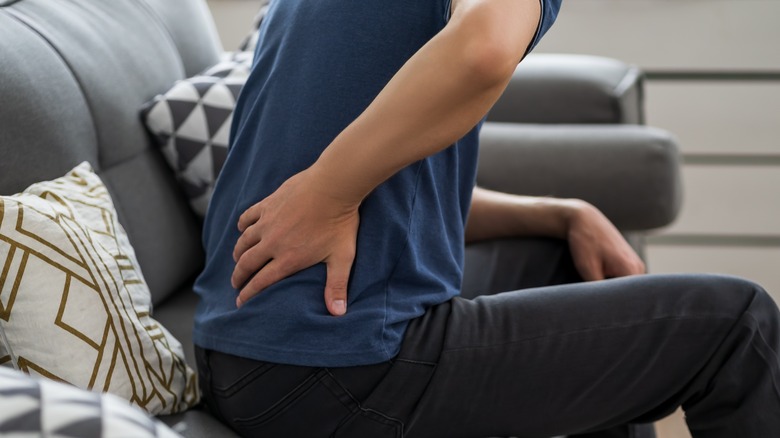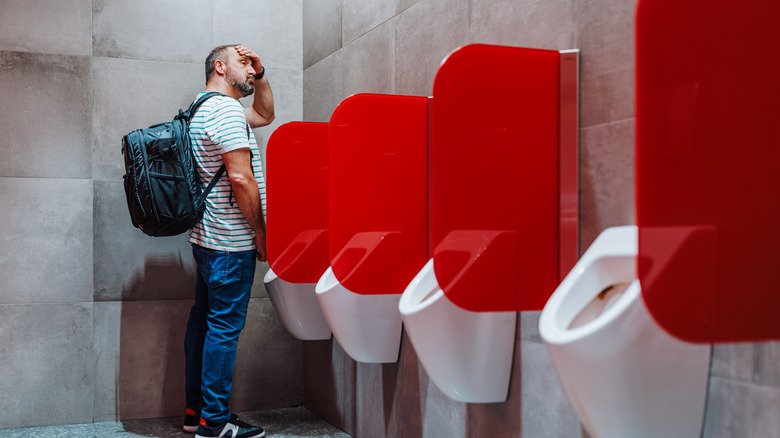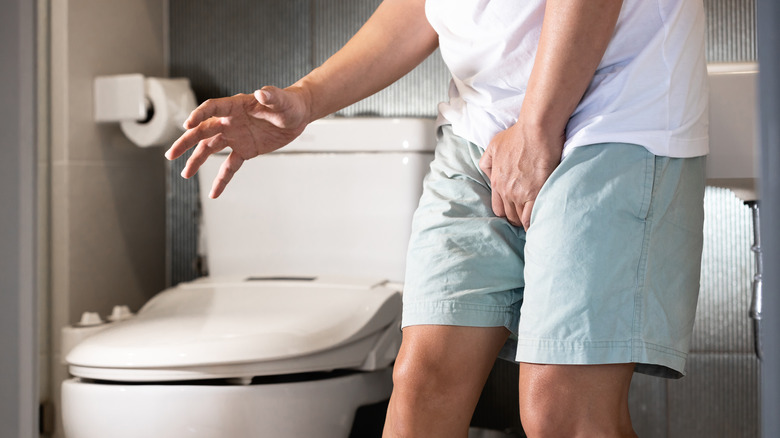Do This When You Pee To Prevent Kidney Stones
Each time you pee, your body rids itself of waste that your kidneys have filtered from your blood. You need a certain amount of water in your system so that your kidneys can produce enough urine. If the waste in your kidneys builds up without enough fluid, these chemicals can form crystals that bind together to make a stone.
Although some kidney stones can pass through your system easily, some can grow as large as a golf ball, says the National Kidney Foundation. Larger stones can cause pain while urinating, especially if they're blocked in your urinary tract. You could also feel a sharp pain in your back or a stomach ache. Cloudy or bloody urine, fever, or chills are also symptoms of kidney stones. The National Kidney Foundation also said that kidney stones are relatively common, occurring in about one in 10 people in their lifetime. One way you can prevent kidney stones is by regularly and fully emptying your bladder.
Sometimes your bladder doesn't empty
No, it's not that people purposely hold back from completely emptying their bladders. This condition is also known as urinary retention. According to Urology of Greater Atlanta, certain conditions might prevent the bladder from emptying all the way, such as urinary tract infections (UTIs), bladder infections, and neurological disorders. Some medications might make urination difficult. Men with an enlarged prostate might have problems emptying their bladders because the prostate can block the flow of urine. According to the National Institutes of Health, one in 10 men over 70 can develop problems with acute urinary retention.
If you don't empty your bladder completely and regularly, the waste filtered by the kidneys has time to form kidney stones. Over time, you could damage your kidneys as they swell and put pressure on other organs. It also stretches the bladder, which can cause damage. You can also develop incontinence as your bladder begins to leak. If you know you have a full bladder but cannot urinate, seek medical help right away.
How to fully empty your bladder
Drinking enough water will not only prevent kidney stones but also allow for more frequent pee stops. Although your hydration needs are unique, the National Kidney Foundation suggests drinking 12 glasses of water a day. You'll also want to eat plenty of bladder-friendly foods like pears, bananas, lean proteins, and whole grains (per the American Urological Association). A diet rich in fruits and vegetables also makes your urine less acidic and prevents kidney stones. Citrus fruits, coffee, alcohol, and carbonated beverages aren't great for your bladder health. Constipation can also put stress on your bladder, so be sure to eat foods rich in fiber to stay regular.
You'll also need to listen to your body when you have the urge to pee. Once you're there, don't force yourself to pee. That will stress out your bladder muscles. Instead, relax your pelvic floor muscles to allow the urine to release from your bladder. However, you shouldn't head to the toilet unless you have the urge to pee. If you pee without an urge, you're training your bladder to trigger the urge when your bladder isn't full of urine.



